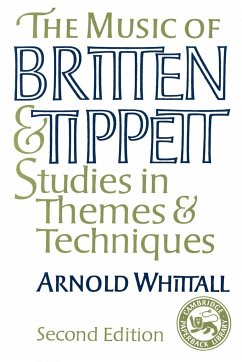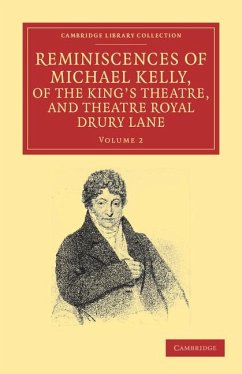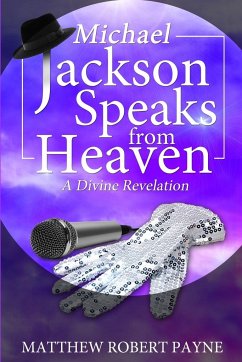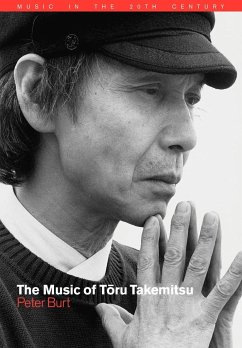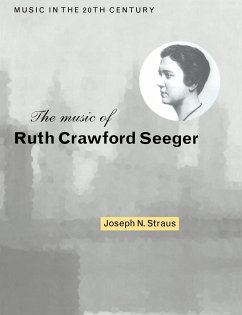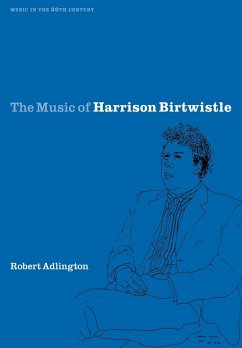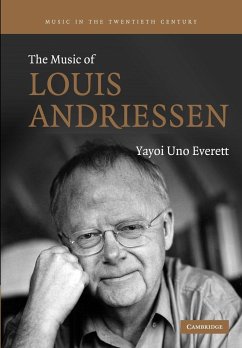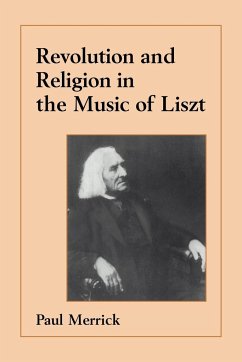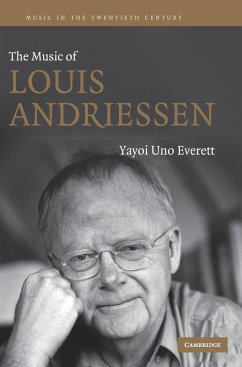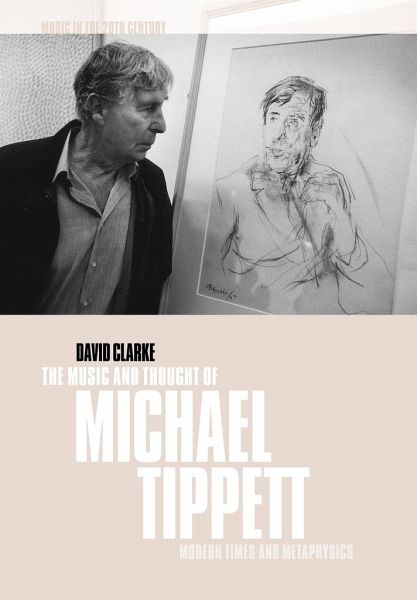
The Music and Thought of Michael Tippett
Modern Times and Metaphysics
Herausgeber: Whittall, Arnold

PAYBACK Punkte
24 °P sammeln!
This multi-faceted study looks in detail at the music and thought of Michael Tippett.Tippett is often cast as a composer with a strong visionary streak, but what does that mean for a twentieth-century artist? In this multi-faceted study, David Clarke explores Tippett's complex creative imagination - its dialogue between a romantic's aspirations to the ideal and absolute, and a modernist's sceptical realism. He shows how the musical formations of works such as The Midsummer Marriage, King Priam, and The Vision of Saint Augustine resonate with the aesthetic and theoretical ideas of key figures i...
This multi-faceted study looks in detail at the music and thought of Michael Tippett.
Tippett is often cast as a composer with a strong visionary streak, but what does that mean for a twentieth-century artist? In this multi-faceted study, David Clarke explores Tippett's complex creative imagination - its dialogue between a romantic's aspirations to the ideal and absolute, and a modernist's sceptical realism. He shows how the musical formations of works such as The Midsummer Marriage, King Priam, and The Vision of Saint Augustine resonate with the aesthetic and theoretical ideas of key figures in modern Western culture - some known to have been influential to the composer (such as Jung, Wagner and Yeats), others not usually associated with him (such as Kant, Nietzsche and Adorno). Analyses of late works such as the Triple Concerto and Byzantium also speculate on Tippett's sexuality as a (literally) critical element in his creative and political consciousness.
Review quote:
'A study by turns stimulating, challenging and inspiring.' International Record Review
'- clearly defined studies of aspects of one or two works - rich and fascinating cultural and aesthetic interpretations - in terms of the weight of existing scholarship and the interpretative challenges surrounding these subjects, their achievements seem more remarkable for the high standards they have now set.' Journal of the Royal Musical Association
'Clarke has much to offer in terms of a deeper appreciation of a number of existing concerns of Tippett scholarship. - Clarke's book represents a hugely significant move towards developing a clear cultural understanding of Tippett -'. Journal of the Royal Musical Association
Table of contents:
Acknowledgements; References to Tippett's scores and essays; 1. Tippett and the 'world vision' of modernity; 2. The significance of the concept 'image' in Tippett's musical thought: a perspective from Jung; 3. Back to Nietzsche? Transformations of the dionysiac in The Midsummer Marriage and King Priam; 4. Metaphysics in a cold climate: The Vision of Saint Augustine; 5. 'Shall we ...? Affirm!' The ironic and the sublime in The Mask of Time; 6. The meaning of 'lateness': mediations of work, self and society in Tippett's Triple Concerto; 7. The golden bird and the porcelain bowl: Byzantium and the politics of artefacts; Notes; Bibliography; Index.
Tippett is often cast as a composer with a strong visionary streak, but what does that mean for a twentieth-century artist? In this multi-faceted study, David Clarke explores Tippett's complex creative imagination - its dialogue between a romantic's aspirations to the ideal and absolute, and a modernist's sceptical realism. He shows how the musical formations of works such as The Midsummer Marriage, King Priam, and The Vision of Saint Augustine resonate with the aesthetic and theoretical ideas of key figures in modern Western culture - some known to have been influential to the composer (such as Jung, Wagner and Yeats), others not usually associated with him (such as Kant, Nietzsche and Adorno). Analyses of late works such as the Triple Concerto and Byzantium also speculate on Tippett's sexuality as a (literally) critical element in his creative and political consciousness.
Review quote:
'A study by turns stimulating, challenging and inspiring.' International Record Review
'- clearly defined studies of aspects of one or two works - rich and fascinating cultural and aesthetic interpretations - in terms of the weight of existing scholarship and the interpretative challenges surrounding these subjects, their achievements seem more remarkable for the high standards they have now set.' Journal of the Royal Musical Association
'Clarke has much to offer in terms of a deeper appreciation of a number of existing concerns of Tippett scholarship. - Clarke's book represents a hugely significant move towards developing a clear cultural understanding of Tippett -'. Journal of the Royal Musical Association
Table of contents:
Acknowledgements; References to Tippett's scores and essays; 1. Tippett and the 'world vision' of modernity; 2. The significance of the concept 'image' in Tippett's musical thought: a perspective from Jung; 3. Back to Nietzsche? Transformations of the dionysiac in The Midsummer Marriage and King Priam; 4. Metaphysics in a cold climate: The Vision of Saint Augustine; 5. 'Shall we ...? Affirm!' The ironic and the sublime in The Mask of Time; 6. The meaning of 'lateness': mediations of work, self and society in Tippett's Triple Concerto; 7. The golden bird and the porcelain bowl: Byzantium and the politics of artefacts; Notes; Bibliography; Index.





